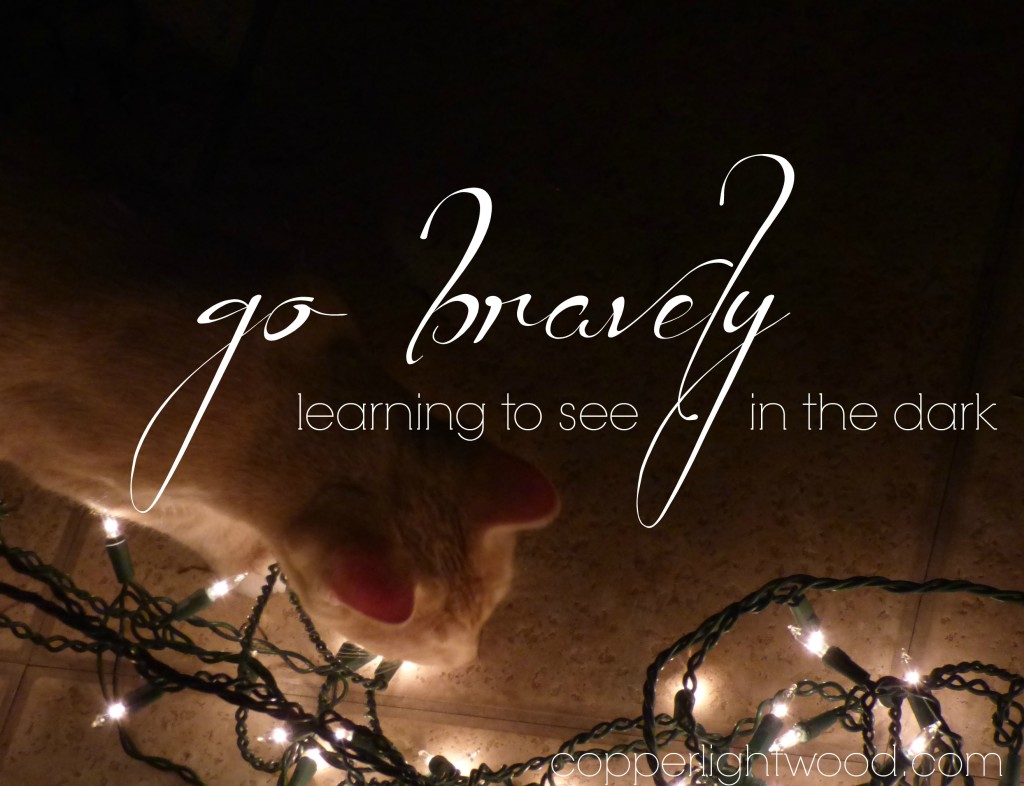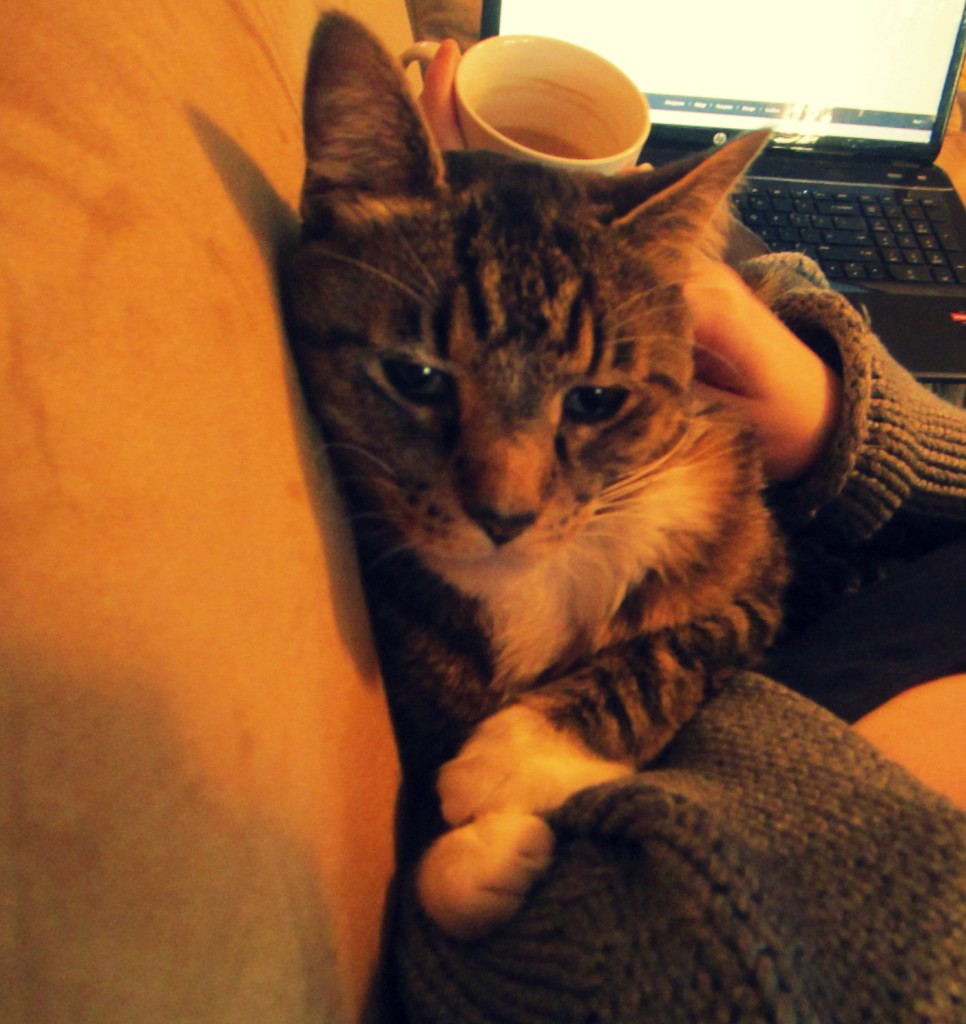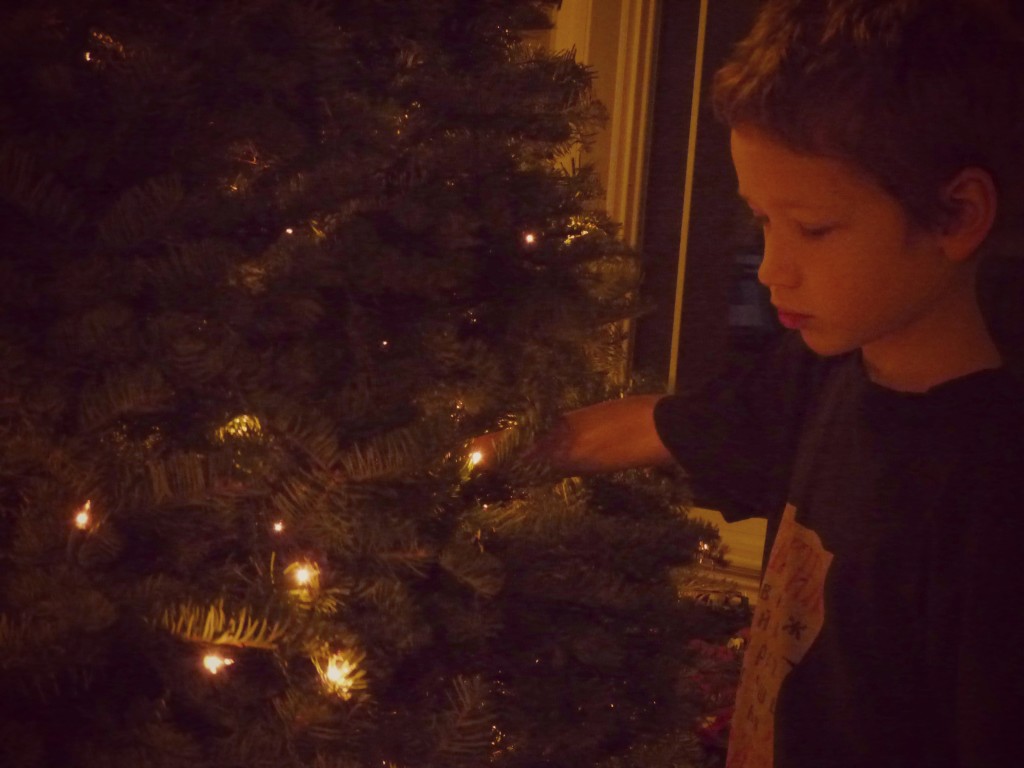Few decorations, no baking, no projects, no formal dinner. Our Christmas was so far from perfect this year. But one part stands out — Christmas Eve, just sitting on the couch next to my grandma, holding hands. Asking her how she’s feeling. Her asking me how I’m feeling. Talking about cats, hers and ours. Taking turns demurring more food and sweets, and eating seconds anyway.
She’s 83 this Christmas, and I just turned 38. On my birthday she pointed out that our ages mirror each other.
We sat in the living room and listened to her reminisce with my dad and uncle, and they got to talking about collecting pine knots in the woods for firewood when the boys were little. What are pine knots? I asked, having often heard of them but never knowing what they were. I’ve always lived in Alaska, and we have spruce trees, not pine. But Grandma and Grandpa lived in Arizona before coming up here with their four boys.
Pine knots, they told me, are what is left after a pine tree has fallen and rotted away – they are the tough joints and sinew where the branches were attached to the trunk, and when the tree fell and the rest of it decomposed, these knots endured the weather and decay. Good fuel, Grandma said – small, but burned forever, and smelled better than the creosote from the old railroad ties they often had to burn.
This brave woman, just under five feet tall now, brought those boys to Alaska and was often alone and on her own as she raised them amid all their shenanigans. And she wasn’t finished; she still had one more boy to go. Grandma still sees so much though her vision has been failing. Her eyes are bluer than mine.
As I’m thinking back on all of this, I’m sitting with Gus, our older striped cat, who used to be shared equally between our oldest son and myself. Now he seems to clearly prefer me. Between the two of us sitting on the couch, he almost always comes to my end and climbs on my lap, heedless of the shrinking real estate due to a pregnant tummy. Maybe it’s because of Sophie’s absence, or because of the kittens’ presence, but I think it really just boils down to comfort. He’s older, a little bonier, stiffer, and less tolerant of sudden moves and loud noises. He wants the gentle touch of the mama-friend, not the rough scrubbings of kids who have yet to learn empathy wrought by pain or age.
And we are like this, too, in our seasons of rawness. When we are tender and fragile, we naturally lean toward the friend who wields words and truth gently, who holds wisdom humbly because they won it through pain without allowing bitterness to fester. A heart that is ready to be comforted runs to the friend who carries compassion forged through experience.
The night that I called my grandma to tell her about our our curve ball, our surprise due mid-summer, I wondered what she would say. I wondered if she would discourage me without meaning to when I already felt so brittle.
Why do we do this, bracing ourselves against discouragement even from those we’ve learned to trust most? But I did brace myself, and told her.
And she asked, “How old are you now?”
Here it is, I thought. “Umm. Almost 38.”
“Ohh…” I could hear her smile. “That’s a good age…not too old, not too young. I was, oh, 41 when I had Mark. And he was so special, such a gift. A surprise, too, but such a joy. You are –” she paused, I heard a sigh over the phone — “so very blessed.”
Exhale.
You are so very blessed.
She saw. She knew I was anxious, and she knew what to say to speak life, comfort, ease, and encouragement. She spoke of my uncle, their fifth boy, the only one born in Alaska. Born in the same place I was, five years before me.
We can know things for ourselves, and still need to hear them from others. We can encourage each other with truth and fight each other’s darkness, but still need others to shine that truth into us on the days that fall pitch black. We stumble and get our hands and knees in the mud, and a fellow traveler says, Here, I’ll hold your lantern for you while you get back up again. There you are. Bravely now, onward.
And on Christmas Eve we sat on my dad’s couch and held hands. On the other side of her was my uncle, the last one born in the States before they moved here. Our kids played with cars behind the couch and we forgot to bring our camera and it was just a small gathering on Christmas Eve in this season that has felt incomplete from the very beginning. And still, it was perfect.
These curving seasons with stormy weather and crumbling are what make our story endure. They are the turns, the branchings-off, the connections that make us of the tough sinew that lasts, uncorroded and unwasted.
For the unsettled family who doesn’t know where they’ll be going in six months, but they know they won’t be staying where they are; for the grieving family who had no preparation for the loss they are suddenly facing; for the parents making choices they never thought they’d have to consider for their children; for the single person confronted with unknowns beyond reckoning; for the mama facing an unexpected pregnancy while still overwhelmed with an alphabet soup of special needs and health issues…may we be the friends who hold wisdom humbly.
This is the year to speak truth in tenderness. This is the year to speak life into darkness for ourselves, and for each other. Oh, my friends: this is the year to face things bravely.
But I suppose it’s often that way. The brave things in the old tales and songs, Mr. Frodo: adventures, as I used to call them. I used to think that they were things the wonderful folk of the stories went out and looked for, because they wanted them, because they were exciting and life was a bit dull, a kind of sport, as you might say. But that’s not the way of it with the tales that really mattered, or the ones that stay in the mind. Folk seem to have been just landed in them, usually — their paths were laid that way, as you put it. But I expect they had lots of chances, like us, of turning back, only they didn’t. And if they had, we shouldn’t know, because they’d have been forgotten.
– J.R.R. Tolkien, The Two Towers
May we be unflinching, not shrinking back, but moving in bold obedience to the curves and bends in our story. You are so very blessed.
Most of it is not what we planned…and that is okay. Heroes are not made in control groups living inside a sterilized petri dish. They are made in the wild. They are those who choose to lean hard into the curve instead of turning back.
_____
This is an excerpt from Risk the Ocean: An Adoptive Mom’s Memoir of Sinking and Sanctification.



